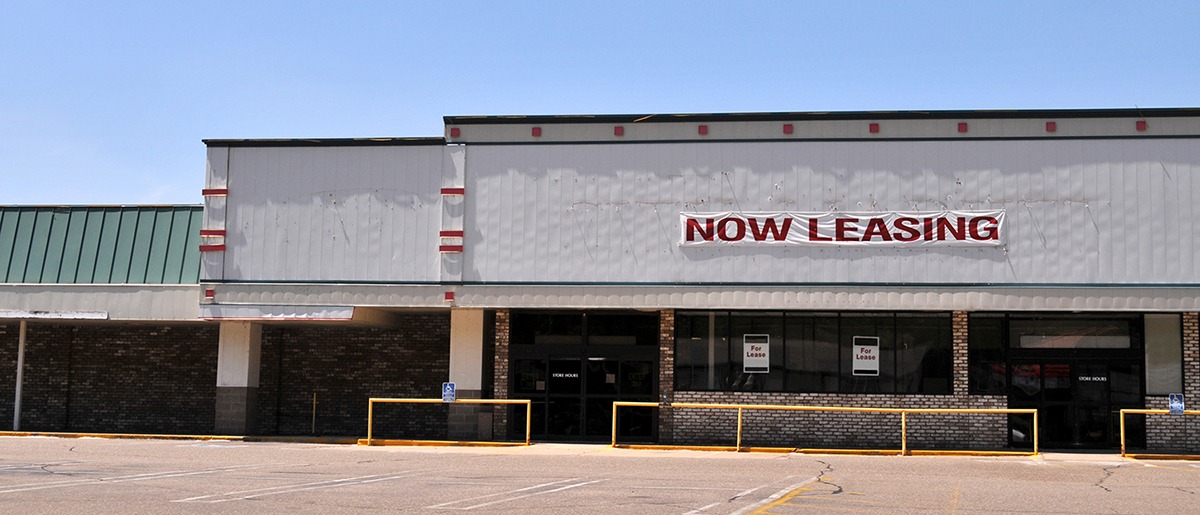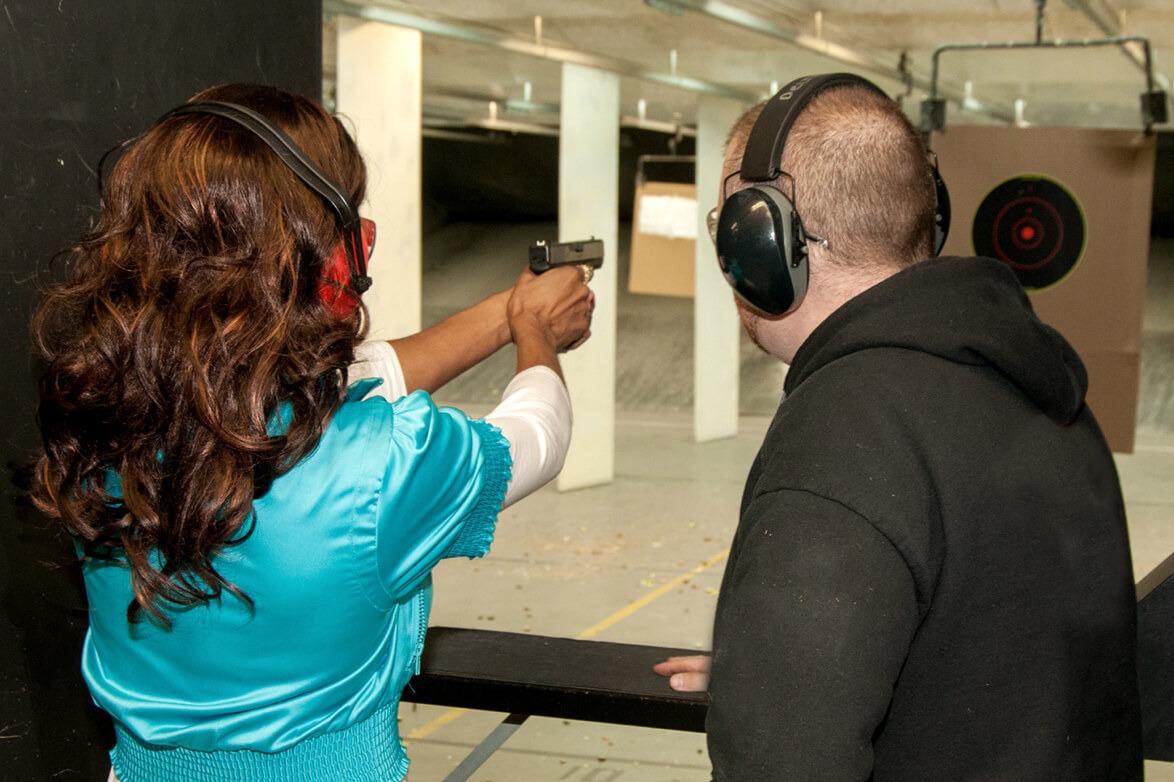 Back to News
Back to News
September 7, 2017
How to Find the Right Storefront Lease
A good location at any cost is not a good location.
Store location can make a retailer. At the same time, a great location had at any price can break that same retailer. Occupancy expenses can quickly kill profits. Thus, location at any cost is not a good location.
You’re Going to Want Help with This
Most retailers lease their locations versus owning the real estate. An inherent problem with this is that the landlord negotiates leases constantly, every day, in fact, while the retailer might do it only every two to 10 years. This makes the playing field for a lease very unlevelled, with most advantages in favor of the landlord.
You may know about firearms and shooting, but your leasing company knows real estate and lease contracts. They have knowledge and experience on their side and how to sell your home safely and efficiently. Thus, you need your own advocates when it comes to lease negotiations, because the deal you strike from day one will help you or hurt you for the duration.
It is prudent, even strongly recommended, that firearms retailers seek professional help from their attorney, accountant and business advisor. As the leasing retailer, you should provide comment upon the entire lease, giving particular attention to the economic and general provisions (along with input from any business manager you might be consulting with), while your attorney should comment on the entire lease but focus on the legal issues.
That’s not to say that your attorney shouldn’t look at the whole lease, nor your accountant nor business advisor. The main message here is that if you just give the lease to your attorney to handle (commonly done), you’ll get a legal opinion instead of a business opinion. Certainly, your attorney may comment on other provisions of the lease, but his or her first responsibility is to provide legal language for your benefit as the lessee. Let the accountant address the accounting numbers, but most importantly you should review all the language of the lease through the prism of the entrepreneur.
By the way, I have used real estate agents before to locate store locations for me, the premise being that a buyer’s agent should be working in the interest of their client, not the seller. But my experience has been that most are really just commissioned sales persons who have limited knowledge of lease provisions for the benefit of the lessee. Also, they don’t get paid until you sign a lease and therefore there is a conflict of interest.

Start Writing
Let’s start at the top. The lease you’ll be presented with will be written for the landlord’s benefit and protection, not yours. Therefore the lease will be absent language that protects your interests. Expect to make significant changes to the landlord’s lease, along with adding specific lease addenda that protect your interests.
Similarly, the lease will contain a great deal about your obligations as the tenant under the lease and almost nothing about the landlord’s obligations. Correct this by clearly stating landlord’s obligations, such as the obligation to rebuild after a casualty, expected maintenance and their schedules, and the carrying of sufficient insurance. Also, be sure the landlord is responsible for the structural integrity of the building.
It’s All Up for Discussion
Almost every aspect of a lease is negotiable, regardless of what your potential landlord says. If you don’t like certain language, just say “delete it” or offer replacement language. Let the landlord defend his position versus you justifying your position.
While the ultimate decision on location is a business decision based upon the retailer’s plans and analysis of the market, there are a number of lease provisions that should be demanded in every lease for the protection of the retailer. Consider the following:
- Rent Abatement — Include a rent abatement provision stating that if and when certain circumstances exist, then all rent and other charges will abate proportion to the time you cannot operate normally, such as would be in the case of fire or other casualty, landlord repairs to the premises, interruption of utilities or other negotiated actions.
- Other Charges — Usually there are a variety of charges due in addition to the base rental fee. These other costs include such items as common area maintenance, insurance, management expenses and a host of other miscellaneous fees. Scrutinize these charges thoroughly, make sure you have an audit provision in place that validates the cost components of such charges and request percentage increase caps.
- Build-Outs — When considering a lease to a property that has yet to have its final construction completed or will be substantially altered after being vacated by a previous tenant the completion or renovation of such premises is usually performed by the landlord — but who pays for this work is totally negotiable. With such properties, most landlords include a building allowance as a part of their lease cost basis, therefore be sure to demand all or part of the construction allowance. At the very least, ask for free rent to cover these costs. Of course, you will also need to be very specific about build-out details.
- Tenant and Landlord’s Defaults — Here again the lease will contain pages of remedies in the event of a tenant default and nothing about defaults on the landlord’s part. Your attorney should provide such protective language.
- Personal Guarantees — The landlord may want your personal guaranty on the lease. With such a guarantee, if the business fails, you would be on the hook personally for all financial lease obligations such as rent and other charges. In short, don’t do it. The assets of your company and its profit potential should be sufficient to secure the lease and business loan if necessary. If you as the lessee must have the location and if the landlord won’t budge on this requirement, then agree to the personal guaranty for only one or two years and with language in the lease stating that requirement will then be dropped.
- Out Clauses — Negotiate an “out clause,” which will allow you to vacate the lease if certain conditions exist. Some examples include an out clause for loss of an anchor store or when occupancy drops below a certain percentage when the location is in a defined retail area or chain store area, or after two years of occupancy upon 90-days notice.
Additional Considerations
Two other points to consider. First, when you get to the subject of rents, you’ll definitely want to have done some comparison shopping and have your numbers ready. Rents are a function of demand, along with factors such as the health of the economy, vacancy rates, size and age of the space and amount of build-out required. If you’ve hired a real estate agent specializing in retail lease spaces to help you find the right location, they should be able to crunch all these numbers for you (and if they can’t, you probably better find a different agent).
Second, a good lease results when you know your “walk points” — the point at which you are willing to end the negotiations if a reasonable compromise cannot be reached. Guard against falling in love with any given location. In fact, I recommend that, if possible, you should negotiate for several locations at once, wherein you can compare opportunities.
Conclusion
In summary, if you can’t negotiate a fair lease with appropriate tenant protections and with economics that fit your business model, then don’t do it! Locations are somewhat like buses, if you miss one, another will come by shortly.
You might also like: Starting Point – Compliance for Startups
ABOUT THE AUTHOR
Robbie Brown has an extensive background in retailing, wholesaling, distribution service industries and consulting. He has been CEO of numerous companies in the shooting sports industry, including several retail chains and distribution companies. Brown consults for businesses of all sizes in both the merchandise and service industries, as well as for a variety of corporations, industry groups and trade associations. He is a frequent round-table moderator and speaker before industry trade shows, conventions and other corporate groups, and he has published more than 300 business-related articles in various trade magazines, delivered hundreds of speeches and served as a business advisor to many CEOs both inside and outside of the firearms industry.









